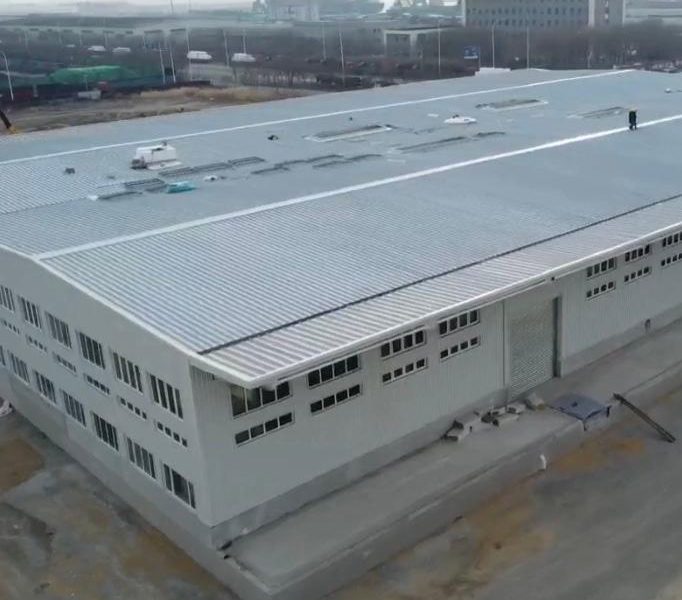
Modular Steel Office Buildings: Scalable and Durable Workspaces for B2B Operations
Businesses today require office spaces that are flexible, scalable, and cost-efficient. Traditional construction methods often involve long timelines, high costs, and limited adaptability. Modular steel office buildings offer a modern solution that combines prefabrication, rapid deployment, and durability to meet the evolving needs of B2B clients.
This article examines the advantages, design considerations, and applications of modular steel office buildings for commercial and industrial operations.
What Are Modular Steel Office Buildings?
Modular steel office buildings are prefabricated structures constructed with steel frames, insulated panels, and customizable modules. These units are manufactured off-site in controlled environments and assembled on-site, ensuring high-quality construction and quick deployment.
Unlike traditional offices, modular steel buildings allow for flexible layouts, multi-story expansion, and relocation if needed. Interior spaces can be tailored for workstations, meeting rooms, collaborative zones, and administrative areas.
Key Advantages of Modular Steel Office Buildings
- Rapid Deployment
Prefabricated modules reduce construction time significantly. Offices can be operational in weeks rather than months. - Durability and Longevity
Steel frames resist fire, pests, rot, and extreme weather. Modular offices maintain structural integrity for decades with minimal maintenance. - Cost Efficiency
Reduced on-site labor, minimized material waste, and shorter construction timelines result in significant cost savings for B2B clients. - Flexibility and Scalability
Modular designs allow horizontal or vertical expansion, accommodating growing business needs without major operational disruption. - Customizable Interiors
Office layouts can be designed for workstations, private offices, meeting rooms, break areas, and IT integration, optimizing workflow and productivity. - Energy Efficiency
Insulated panels, energy-efficient HVAC systems, and natural lighting options reduce operational energy costs and support sustainability goals. - Safety Compliance
Modular steel offices meet industry regulations, including fire safety, load-bearing standards, and accessibility requirements.
Design Considerations for B2B Office Spaces
When planning modular steel offices, clients should consider:
- Space Utilization: Optimize layout for productivity and collaboration.
- Accessibility: Include ramps, elevators, and wide corridors to meet safety standards.
- Lighting and Ventilation: Maximize natural light and airflow to enhance employee comfort.
- Future Expansion: Modular units should allow seamless addition of new floors or sections.
- Integration with Existing Operations: Ensure smooth connectivity with adjacent industrial or commercial areas.
Applications Across Industries
Modular steel office buildings are suitable for:
- Industrial Sites: Administrative offices integrated with production facilities.
- Construction Projects: Temporary or semi-permanent project management offices.
- Commercial Complexes: Flexible office spaces for startups or temporary tenants.
- Research and Development Centers: Configurable spaces for laboratories, testing, and collaboration.
- Corporate Campuses: Scalable multi-story office solutions with long-term durability.
Case Studies
- Industrial Facility (Germany):
Installed a modular steel office adjacent to a manufacturing line. Achieved operational readiness within six weeks. - Construction Project Headquarters (Australia):
Deployed modular offices for site management. Relocated units to a new site after project completion, saving construction costs. - Startup Campus (USA):
Built multi-story modular offices with customizable interiors and integrated IT systems. Rapid occupancy allowed immediate business operations.
Why B2B Clients Should Consider Modular Steel Office Buildings
Modular steel offices provide tangible benefits for businesses:
- Speed: Rapid assembly supports operational continuity.
- Durability: Long-lasting structures withstand heavy use and environmental stress.
- Cost Savings: Reduced construction, maintenance, and relocation costs.
- Flexibility: Modular design allows expansion, reconfiguration, or relocation.
- Operational Efficiency: Customizable interiors improve workflow and employee productivity.
- Sustainability: Energy-efficient materials and recyclable steel support environmentally responsible operations.
For B2B clients, modular steel office buildings represent a strategic investment that enhances productivity, reduces costs, and ensures long-term flexibility.
Conclusion
Modular steel office buildings are revolutionizing workspace solutions by providing fast, durable, and scalable offices. Prefabrication, modular layouts, and energy-efficient designs optimize productivity while reducing construction time and costs.
For businesses seeking flexible, sustainable, and durable office spaces, modular steel office buildings offer a practical solution that meets the demands of modern operations.
